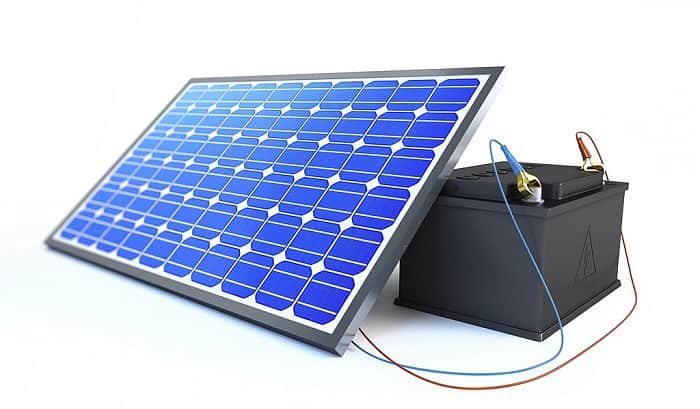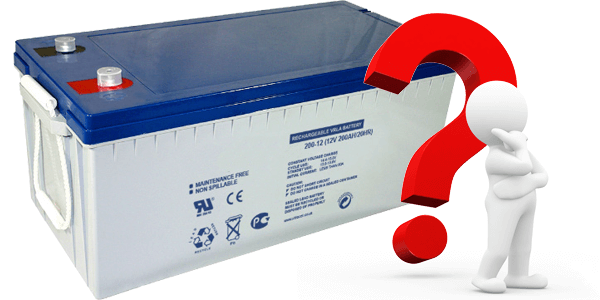
How long do solar batteries last?
If you have a solar power system with a battery bank, you may be interested in knowing how long do solar batteries last? in this article we will tell you.
Between the significant increase in electricity costs, the destruction of natural calamities, and fluctuating grid outages, it is no wonder why more homeowners are switching to solar power to meet their energy needs. A solar battery system allows you to absorb more solar energy and store it until you need power to light your place.
How long do solar batteries last?
Regardless, it helps to ask yourself a few questions before investing in one. One of these questions is, how long do solar batteries last? It is essential to learn more about the type of battery storage that would be most useful to you.
Primarily, getting great results from solar starts with being a knowledgeable shopper. Let us explore more about the lifespan of solar batteries to help you make a well thought out final purchase decision.
The lifespan of solar batteries
Of course, investing in reliable solar batteries will help you significantly save the electricity your solar panels generate during the day. Not to mention, determining the most prominent batteries for your solar will certainly help you make the right choice. Whether you need a solar system for your small home, cabin, RV, or any other setup where you rely primarily on stored energy, you need to be properly informed.
The universal range for the useful life of a solar battery is between five and fifteen years. This means that if you install a solar battery now, you are more likely to replace it at least once to accommodate the life of your PV system of 25-30 years.
However, just as the lifespan of solar panels has expanded dramatically in the last decade, it is anticipated that solar batteries will follow suit as the market for energy storage solutions expands.
Basically, proper maintenance can also have a noticeable impact on the life of your solar batteries. Solar batteries are tremendously affected by temperature, so protecting your battery from scorching or freezing temperatures can significantly help extend its life.
A photovoltaic battery will need more voltage to acquire an optimal charge when it drops below 30 degrees Fahrenheit. Meanwhile, when that same battery rises above 90 degrees Fahrenheit, it will overheat and demand a decrease in charge.
To avoid this problem, many trusted battery manufacturers today produce solar batteries that come with temperature moderation as an essential feature. However, if the solar battery you buy does not have this feature, you will have to look for other solutions, such as earth-protected housings.
Remember that quality maintenance efforts can greatly affect the life expectancy of your solar battery.
What are the other factors that also affect the life of solar batteries?

Battery composition
The type of battery you choose could make a significant difference; This is especially true when solar energy is stored. Batteries based on contemporary lithium-ion technologies require a larger initial investment; however, they are not prone to degrade quickly and can guarantee longer service.
On the other hand, lead-acid batteries have been well-known and less expensive options for decades; however, they generally have a shorter lifespan, only 3 to 5 years.
Temperature
A battery becomes more chemically active when stored at high temperatures. This makes solar powered batteries less powerful in colder climates. However, the cyclical life of a battery decreases with increasing temperature.
Cyclic battery life
You can quickly detect the life of a solar battery through the number of cycles of use it has or its cyclical life. For example, you can expect a flooded lead-acid battery to produce between 300 and 700 cycles.
On the other hand, lithium batteries are capable of providing 2000 cycles. A GEL cell battery is powerful enough to generate 500 to 5000 cycles.
Depth of Discharge (also known as DoD)
This refers to the range that a solar battery can use compared to its full capacity. Batteries drop when charged or discharged. This, as a result, reduces your ability to retain more energy.
For example, a battery rated 100 kilowatt-hours at 60% depth of discharge would have an exceptional charge of 40 kilowatt-hours.
Roundtrip efficiency
It refers to the difference between the amount of energy used to charge it and the energy available. Of course, a solar battery with higher round-trip efficiency means it’s more cost-effective. It is essential to seek a round trip efficiency of approximately 80%.
How To Increase The Life Of Solar Battery
Regardless of how stellar the battery design is, if not properly maintained this will not guarantee comprehensive services.
Here are some tips that could help extend the life of a solar battery:
- Improve equalization in solar batteries
Battery equalization refers to the process of overcharging solar powered batteries in a regulated approach. Therefore, uneven charging leads to sulphation of the plate. Overcharging eliminates this through gassing.
Today, there are solar batteries that are designed with solar charge controllers . This feature is beneficial in restricting overhead.
- Use suitable solar batteries
Batteries of the correct size for your application will ensure a long service life. These days, more consumers prefer lithium batteries because they have a long lifespan and are conducive and safer for the planet we live on.
Regardless, GEL cell batteries remain the most preferred choice due to their proven long life, typically lasting five to seven years when properly sized. Make sure the type of battery you use is rated at 25.6 volts or 12.8 volts as these options last longer.
- Regulate the number of batteries
Consider reducing the number of batteries used in the bank. Using multiple batteries can strengthen connection and resistance, which is more likely to end in uneven charging. Therefore, it is crucial to regulate the number of batteries used in your bank to four or less.
- Make sure your solar battery does not discharge for a long period
Your solar batteries are more prone to damage if stored for a long period of time. You should constantly turn on your charging source to allow the battery to constantly charge to facilitate uninterrupted sunlight.
What to look for when choosing a battery that’s right for you

There is no denying that energy storage systems offer myriad benefits, from securing power for emergencies to saving more money in the long run. However, not all homeowners are aware of the technical complexities that solar batteries bring.
So, to help you avoid scratching your head every time you come across unfamiliar terminologies, we’ve listed some of the factors you should focus on and look for in a solar battery.
How do you decide which solar battery specifications are the most important to your needs?
You honestly have several points of comparison and different potential decision criteria for you to make when evaluating your energy storage options.
Here are some of them:
- Higher Usable Capacity – You should look for a battery that comes with a higher usable capacity if you want to run your house on your battery for a long period of time.
- High Power Rating – Look for a battery that has a high power rating. This feature is vital if you prefer to power more of your home or workplace at one time.
- High Instant Power Rating – This is valuable if you want to make sure you can power more energy consuming appliances. For example, you need to power a sump pump; You will need a battery that has high instantaneous power.
- LFP Batteries – These batteries are designed with the highest safety rating and longest life. In short, if safety is your primary concern, these alternatives will give you more peace of mind.
Also, you can cycle lithium iron phosphate batteries for the longest amount of time.
- Higher Round-Trip Efficiency: Batteries with higher round-trip efficiency allow you to make the most of every kilowatt-hour of electricity you store in them.
- Lithium-Ion Nickel Manganese Cobalt (NMC) Batteries – These types of batteries are for applications with limited space and you want to make sure you get the most storage in the least amount of space.
conclusion
It is important to note that not all solar batteries are the same. Specific solar battery systems incorporate state-of-the-art design and technologically advanced features to avoid the degradation process. On average, some solar batteries usually last a few years; however, a high-quality system is capable of meeting your storage requirements for 5 to 15 years.
The lifespan of solar panel batteries depends on many different complex factors. Therefore, understanding how these factors affect the long-term performance of a solar battery can help you decide the most suitable alternative for your application. Hopefully, the information shared in this post can help you better understand the solar battery options that are right for you.






